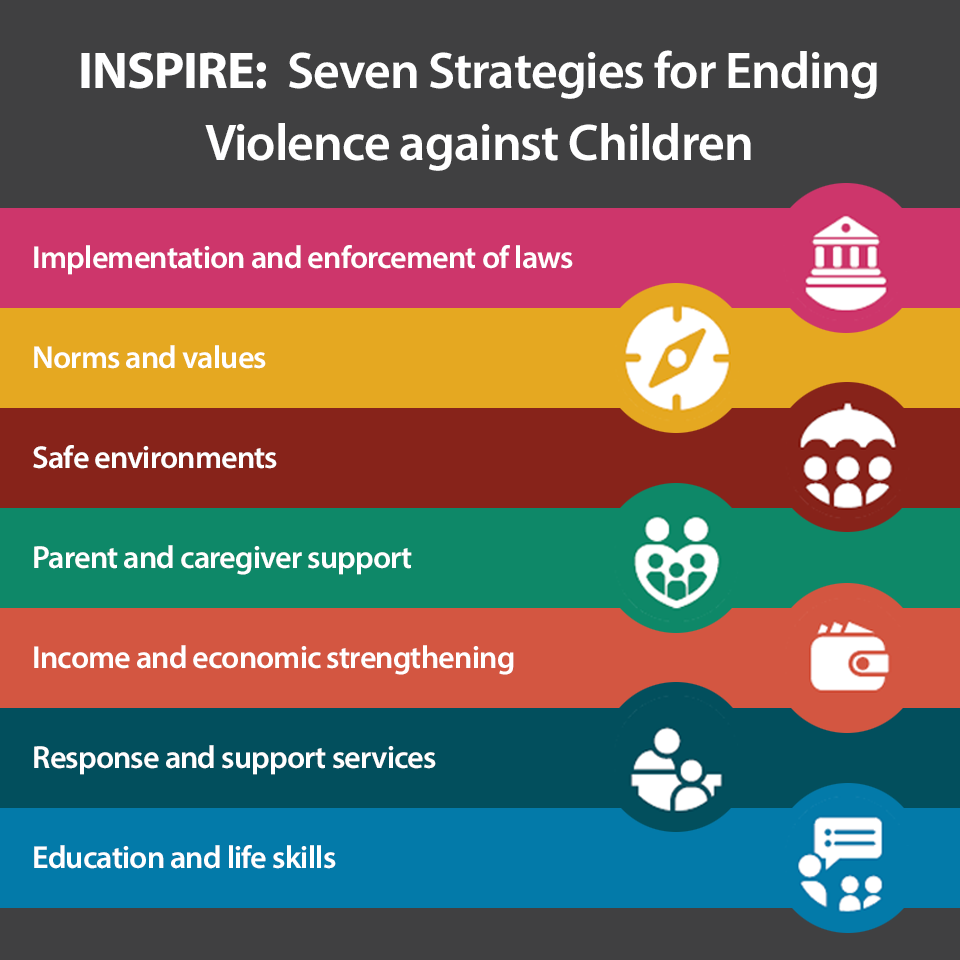INSPIRE: Seven strategies for ending violence against children
Global Partnership promotes evidence-based interventions for violence prevention
1B children worldwide experienced physical, sexual, or psychological violence in the past yr #EndViolence
Tweet #EndViolence
What is it?
The World Health Organization (WHO) along with the Centers for Disease Control, the President’s Emergency Program for AIDS Relief (PEPFAR), Together for Girls, United Nations Children’s Fund (UNICEF), United Nations Office on Drugs and Crime (UNODC), United States Agency for International Development (USAID), the World Bank, Pan American Health Organization (PAHO), and the Global Partnership to End Violence Against Children came together to create an evidence-based technical package of interventions to help countries and communities to prevent and respond to violence against children and adolescents. INSPIRE builds on the knowledge contained in the CDC-developed THRIVES technical package, and targets what is predictable and preventable about violence. INSPIRE also urges countries and communities to provide support and services when children are victimized.

Why is it important?
- At least a billion children suffer some form of violence each year, but violence against children is not an inevitable part of life. It is preventable.
- Violence against children is an urgent and public health problem of epidemic proportions—and like other public health problems it can be contagious within communities and spread from one generation to the next.
- Being a victim of or witness to violence as a child can result in a lifetime of health risks including impairing brain development and damage to other parts of the nervous system, as well as endocrine, circulatory, musculoskeletal, reproductive, respiratory and immune systems.
- Our children deserve the opportunity to thrive. Growing up in safe, stable, nurturing relationships and environments—is the right of every child.
Help Spread the Word
Get friends and colleagues involved! Share this resource to help decision-makers use the best available evidence to support strategies and approaches that will contribute to ending violence against children in countries, regions, and communities on your Facebook page or website.
- Page last reviewed: July 14, 2016
- Page last updated: July 14, 2016
- Content source:
Global Health
Notice: Linking to a non-federal site does not constitute an endorsement by HHS, CDC or any of its employees of the sponsors or the information and products presented on the site.


 ShareCompartir
ShareCompartir